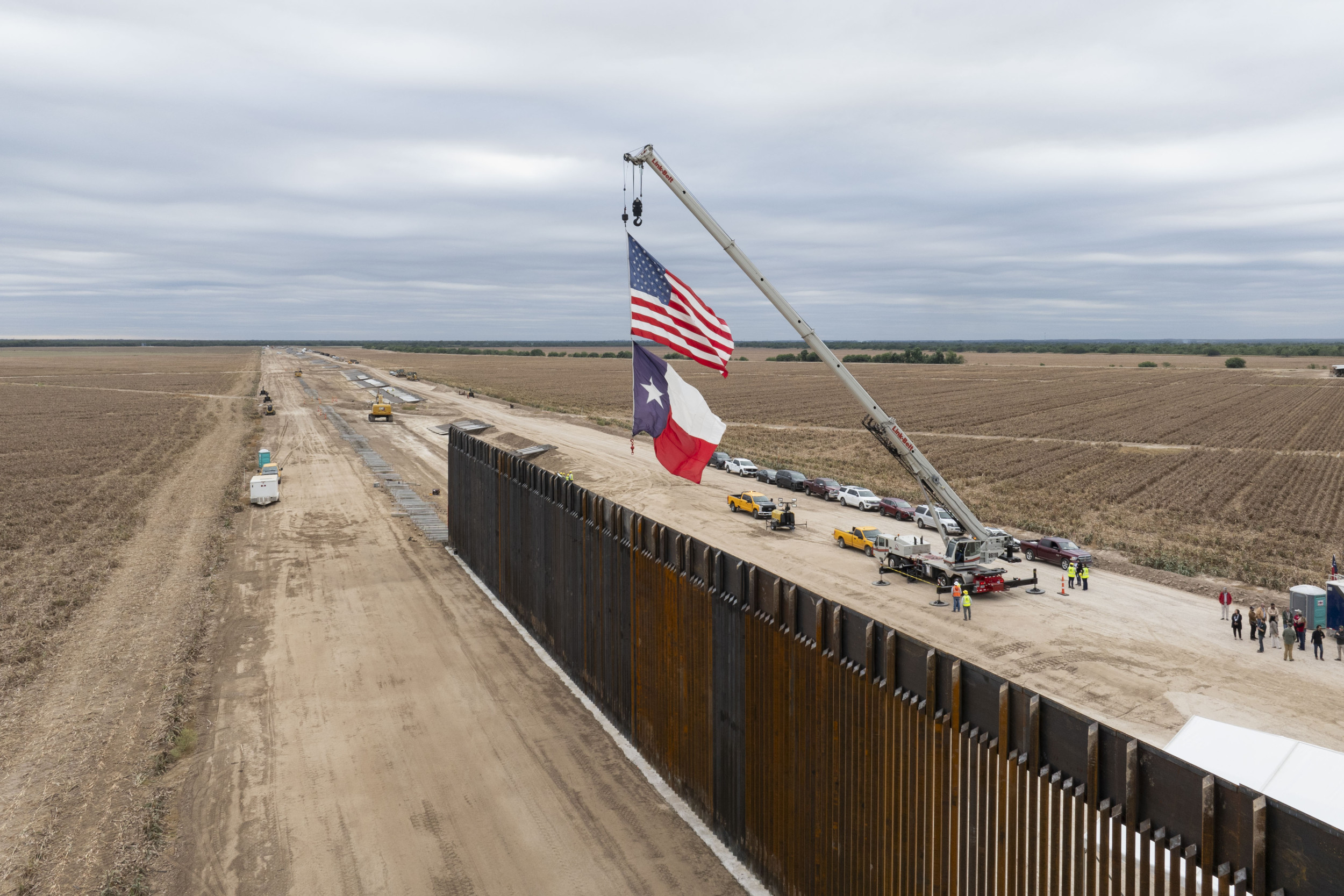What's New
President-elect Donald Trump's border czar, Tom Homan, said he doesn't think birthright citizenship is enshrined in the U.S. Constitution.
Speaking in an interview with CNN on Wednesday, Homan, the former acting ICE director, expressed skepticism about whether the principle of granting citizenship to individuals born on U.S. soil is protected under the Constitution.
"I think that's up to the courts, I think it needs to be held by the Supreme Court," Homan told CNN's Kaitlan Collins after she said Trump's pledge to end birthright citizenship "is no easy feat, given that it is enshrined in the Constitution."
"I kind of disagree with you, I don't think it's enshrined in the Constitution at all – not the way I read it," Homan replied. "But then again, I'm not a constitutional scholar. We'll let the courts decide that on the birthright citizenship."

Homan said that birthright citizenship is "a major magnet for illegal immigration" and that the country has to "stop rewarding illegal behavior."
"Yeah, of course, it's the 14th amendment, as you know," Collins responded.
Why It Matters
The decision to propose ending birthright citizenship when Donald Trump returns to the White House is slowly becoming a core component of the incoming administration's hardline immigration agenda.
Ending birthright citizenship for children of immigrants has emerged as a key focus of the next administration's immigration agenda, following Trump's announcement of his intent to overturn the 120-year-old precedent.
What to Know
"We're going to end that because it's ridiculous," Trump said in NBC's Meet the Press interview on December 8.
The Constitution explicitly states: "All persons born or naturalized in the United States, and subject to the jurisdiction thereof, are citizens of the United States and of the State wherein they reside. No State shall make or enforce any law which shall abridge the privileges or immunities of citizens of the United States; nor shall any State deprive any person of life, liberty, or property, without due process of law; nor deny to any person within its jurisdiction the equal protection of the laws."
Several high-ranking lawmakers, including Texas Senator Ted Cruz and former South Carolina Governor Nikki Haley, would have acquired U.S. citizenship in this way, according to the American Immigration Council.
Meanwhile, new polling shows most voters don't support Trump's birthright citizenship policy.
Out of 924 voters surveyed, 63% supported maintaining birthright citizenship, allowing any child born in the U.S. to receive an American passport. In contrast, 29% believed the policy should be revised to exclude automatic eligibility for children of noncitizens.
Homan's remarks have sparked debate by questioning the constitutional basis of birthright citizenship in the U.S.
What People Are Saying
Hector Sanchez Barba, president and CEO of Mi Familia Vota, told Newsweek: "Trump's vows to end birthright citizenship and deport millions of American citizens and undocumented immigrants is not just unconstitutional or reckless rhetoric but a direct threat that will result in a humanitarian and economic disaster regardless of the form it takes. Separating families, deporting U.S. citizen children, and causing unspeakable chaos to our economy and country is firmly stated in his agenda."
Rep. Chip Roy of Texas told CBS News on 11 December: "We've had [birthright citizenship] as being a problem for a long time... You should have to be the child of American citizens to get citizenship by being born, and then we otherwise naturalize... we need to make sure that's the law going forward."
Trump said in a May 2023 campaign video: "On Day One of my new term in office, I will sign an executive order making clear to federal agencies that under the correct interpretation of the law, going forward, the future children of illegal immigrants will not receive automatic U.S. citizenship."
What Happens Next?
Trump is set to return to the White House on January 20, but his ability to end birthright citizenship will be severely limited. Eliminating these protections would require a constitutional amendment, a notoriously difficult process.
An executive order alone would not suffice.
A two-thirds vote in the House of Representatives and the Senate is required to propose an amendment to the U.S. Constitution.
However, as president-elect, he is expected to sign a raft of executive orders on 'Day 1' of his presidency, focusing on mass deportations and enhanced border security—key promises of his campaign.




















 English (US) ·
English (US) ·